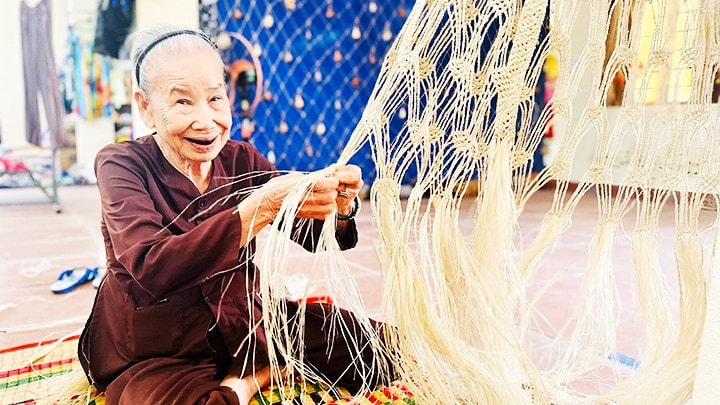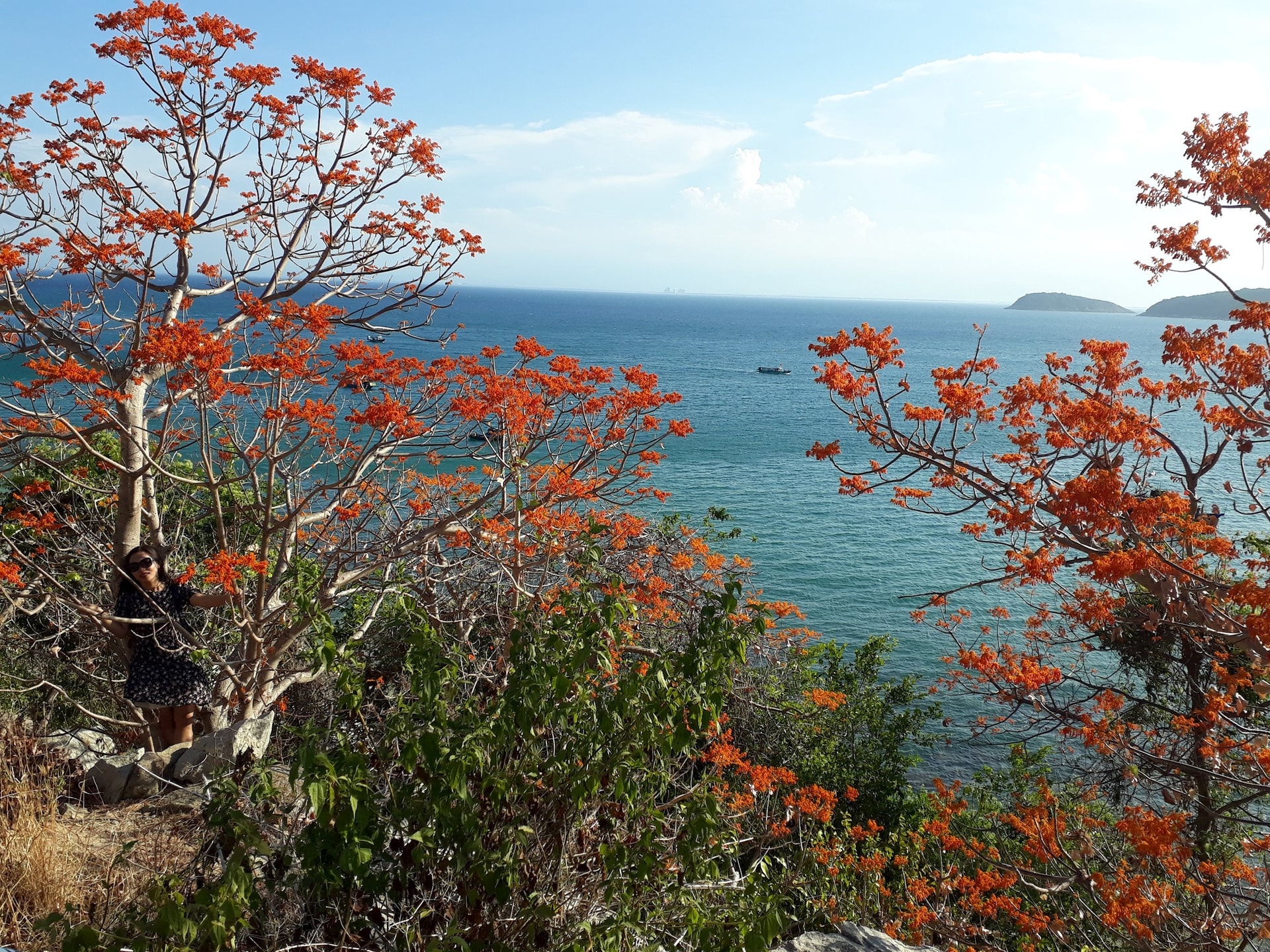On Cu Lao Cham or Cham Islands off Vietnam’s central coast, the fiery scarlet sterculia tree represents both cultural heritage and eco-tourism, with its bark used in the centuries-old tradition of hammock weaving.

Transforming raw bark into soft, smooth hammocks requires meticulous craftsmanship, patience, and deep passion. Local elders proudly share that these handwoven hammocks are durable, comfortable, and even believed to ease back pain.
Each red sterculia hammock measures 2.6 meters and takes over a month to weave by hand. With a lifespan of 5 to 10 years, these hammocks are priced from VND 5 to 10 million.
Recognized as a national intangible cultural heritage by the Vietnamese Ministry of Culture, the tradition of weaving hammocks from sterculia bark is as distinctive as it is labour-intensive.
Since Cu Lao Cham was named a UNESCO Biosphere Reserve in 2009, interest in this heritage craft has surged. Tourists increasingly seek out the hammocks as meaningful souvenirs, while others enjoy hands-on experiences through weaving workshops organized by the local cooperative at Bai Lang market.
The 'Cu Lao Cham - Fiery Scarlet Sterculia Season' Festival has become a cultural highlight, drawing visitors to admire the blooming trees and explore island traditions.

The trees are modest in height, typically 5 to 10 meters, with thick, twisted trunks and coarse bark resembling ancient temple trees. Also interestingly, the seeds, when roasted, are rich in oil and deliciously nutty.
For Cu Lao Cham, the sterculia is more than a tree, it’s a living link between nature, heritage and sustainable tourism.